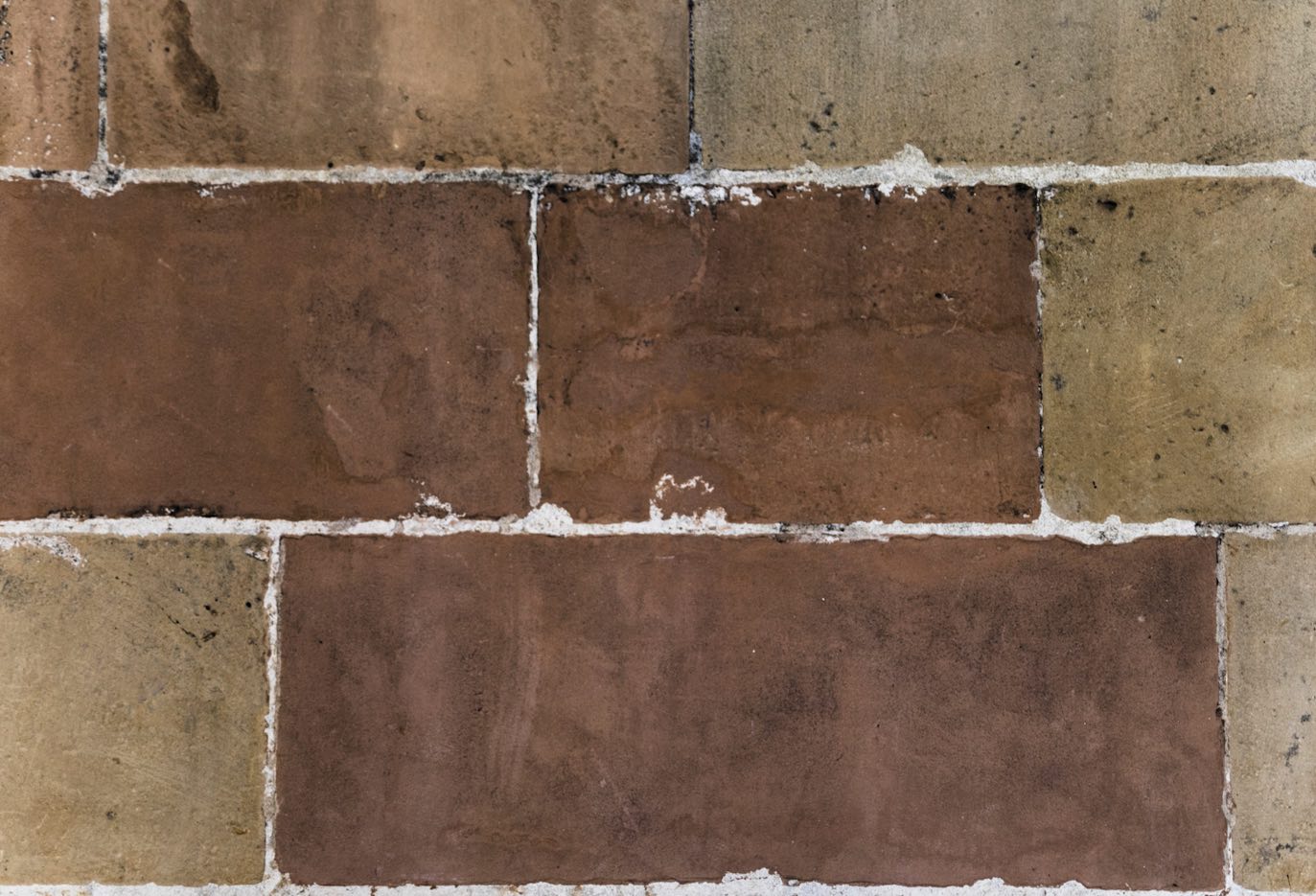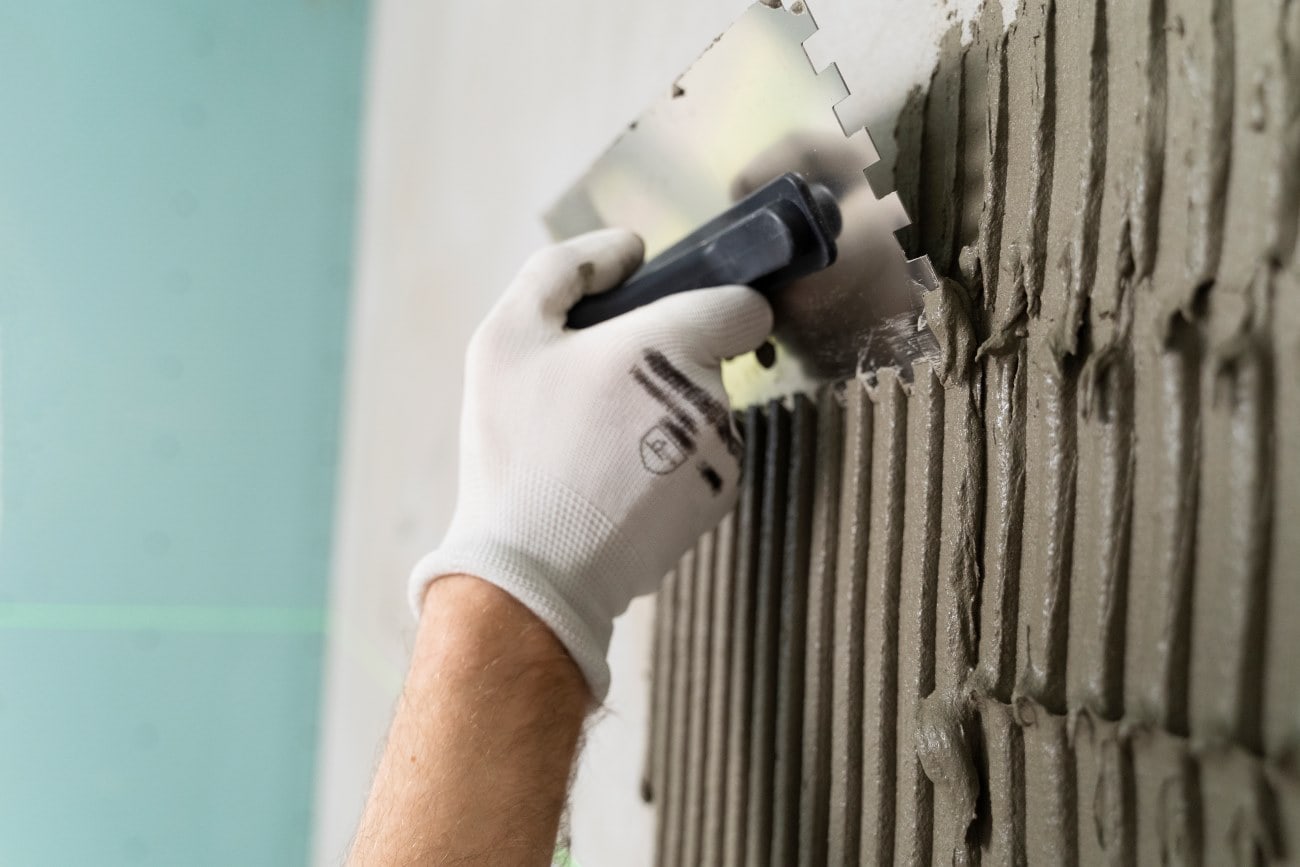Choosing the right type of grout is essential for a successful tiling job, whether it’s in your home or a commercial setting. The right grout ensures durability, protects your tiles, and enhances the overall aesthetic of your space.
Several types of grout are available, each with specific characteristics and applications. In this blog, we’ll look at the most commonly used types of grout, their benefits, and where they’re best applied.
Let’s get straight to the point.
Proper grout is crucial for a long-lasting, aesthetically pleasing tiling job. Unsanded grout is ideal for narrow grout lines and delicate tiles like polished marble, offering a smooth finish without scratching.
Sanded grout is best for wider joints, is durable, and cost-effective, but should be sealed to prevent staining. Epoxy grout provides excellent moisture resistance, making it perfect for bathrooms and kitchens, though it hardens quickly.
Furan grout, suitable for industrial settings, offers extreme chemical resistance, while cementitious grout is versatile and easy to work with but may require sealing on porous tiles.
1. Unsanded Grout: The Ideal Choice For Narrow Joints
Unsanded grout, sometimes called non-sanded grout, is a mixture of cement, water, and other fine particles, excluding sand. It’s designed for grout lines that are narrower than 1/16 of an inch.
This type of grout is known for its smooth texture, making it ideal for certain types of tiles and applications. The primary reason for using unsanded grout in narrow grout lines is its tendency to shrink after drying.
If you use this type of grout in wider gaps, it will shrink, leaving unsightly gaps in the grout lines. This can affect the strength of your tiling job and compromise the appearance.
For best results, unsanded grout is ideal for natural stone like polished marble ceramic tiles and even for the walls and floors of shower stalls. Our collection of mother-of-pearl tiles also benefits from unsanded grout, providing a smooth, clean finish.
Advantages Of Unsanded Grout
- No abrasive particles: Unsanded grout won’t scratch delicate tiles, making it safe to use on polished surfaces like marble.
- Smooth finish: It creates a sleek and polished appearance, especially in small joints.
- Ideal for narrow grout lines: Its fine composition works well in narrow joints where sanded grout might be too rough.
2. Sanded Grout: Strong And Durable For Wide Joints
Sanded grout is a cement-based mixture containing sand particles in addition to other ingredients. It is ideal for grout lines wider than 1/8 of an inch. The inclusion of sand prevents the grout from shrinking as it dries, ensuring a long-lasting and durable finish.
Sanded grout is especially effective for ceramic and stone tiles, which tend to have wider grout joints. Since it’s less prone to shrinking, it maintains the integrity of the tiling job and provides added stability to the structure.
Benefits Of Sanded Grout
- Durability: The added sand particles strengthen the grout, making it more resistant to cracking.
- Cost-effectiveness: Sanded grout is typically less expensive than unsanded grout, making it a popular choice for larger projects.
- Strength for wider joints: It works exceptionally well in grout lines wider than 1/8 inch, providing structural integrity over time.
However, sanded grout should not be used on polished tiles like marble, as the sand can cause scratches.
Maintenance Of Sanded Grout
Sanded grout is highly absorbent, which can attract dirt over time. To maintain its appearance and durability, it’s essential to seal sanded grout after installation. This prevents staining and helps keep the grout looking clean for longer.

3. Epoxy Grout: The Ultimate Choice For Durability
Epoxy grout stands out from other types due to its unparalleled durability and versatility. It is created by combining epoxy resins with a hardener, resulting in a grout impervious to moisture and highly resistant to wear and tear. Epoxy grout is often used in high-traffic and moisture-prone areas.
Best Uses For Epoxy Grout
Epoxy grout is the go-to option for areas such as bathrooms, kitchens, and showers, where water exposure is frequent. Its moisture-resistant properties make it an excellent choice for wet environments.
Additionally, epoxy grout can be used outdoors due to its resilience against the elements. It is also available in various colours and seamlessly blends with the surrounding tiles.
Advantages Of Epoxy Grout
- Waterproof: Unlike cementitious grouts, epoxy grout does not require sealing.
- Highly durable: It is resistant to staining, cracking, and fading.
- Chemical resistance: Epoxy grout is perfect for areas exposed to harsh chemicals, making it suitable for domestic and industrial settings.
Working With Epoxy Grout
One thing to note is that epoxy grout can begin to harden quickly once mixed. This means you’ll have a limited window to apply it.
For larger projects, mixing smaller batches and storing the remaining grout in a freezer is a good idea to slow the hardening process.
4. Furan Grout: Best For Industrial Applications
Furan grout is another highly durable option, but it differs from epoxy grout in its chemical composition. Instead of using epoxy resins, furan grout relies on fortified alcohol polymers, which offer extreme chemical resistance.
Furan grout gets its name from furfuryl alcohol, a key component of its formula. This type of grout does not require water for mixing, making it unique among grouts.
Furan grout is mainly used in industrial settings like commercial kitchens, research facilities, and warehouses where exposure to chemicals and heavy traffic is common. Its strength and durability make it an excellent choice for these demanding environments.
Installing Furan Grout
Installing furan grout can be a complex process, requiring precise conditions. It is recommended that the installation be performed when the temperature is between 60 and 90 degrees Fahrenheit (70-80 degrees being ideal). Additionally, you must be cautious during mixing, as it can release potentially harmful vapours.
5. Cementitious Grouts: Traditional And Versatile
Cementitious grout is one of the most traditional types of grout and is widely used in both residential and commercial applications. This type of grout is primarily composed of Portland cement, but it also includes filler particles, water-retention additives, and pigments for colour.
Applications For Cementitious Grouts
Cementitious grouts are commonly used for indoor tiling jobs in areas like kitchens and bathrooms. This type of grout is available in various colours, so you can choose one that complements your tiles or provides a bold contrast.
How Cementitious Grout Is Applied
To apply cementitious grout, you simply mix it with water until it reaches the right consistency and then apply it using a trowel. The grout’s water-retentive additives help prolong the curing process, allowing the cement to reach maximum strength over time.
Benefits Of Cementitious Grouts
- Versatile: Suitable for a wide range of indoor applications.
- Easy to work with: It is relatively simple to mix and apply.
- Colour options: Available in various colours to suit your design preferences.
However, cementitious grout can stain porous tiles, so professionals recommend sealing natural stone or other porous surfaces before applying the grout. This precaution is unnecessary for glazed tiles.

Conclusion
Selecting the appropriate grout type depends largely on the specific characteristics of your tiling job. Unsanded grout is ideal for narrow joints and delicate tiles.
Sanded grout is perfect for wider joints and offers additional strength. If you work in areas prone to moisture or chemical exposure, epoxy or furan grout will provide the necessary durability and resistance.
Each type of grout has unique benefits, so consider your project’s demands when selecting. A well-chosen grout will enhance the longevity and beauty of your tile installation, whether in a residential or industrial space.
FAQs
What Is The Best Type Of Grout For Kitchen Backsplashes?
Epoxy grout is often recommended for kitchen backsplashes due to its stain and moisture resistance, making it easy to clean.
Should I Use Sanded Or Unsanded Grout In A Bathroom?
Sanded grout is best for larger joints (over 1/8 inch) like floor tiles, while unsanded grout works well for smaller joints, such as those in wall tiles or showers.
Is Epoxy Grout Waterproof And Suitable For Shower Areas?
Yes, epoxy grout is highly water-resistant and durable, making it an ideal choice for wet areas like showers and baths.
Can I Use Cement-Based Grout In Kitchens And Baths?
Yes, cement-based grout can be used but should be sealed to resist moisture and staining, especially in high-moisture areas like kitchens and baths.
How Do I Choose Grout Color For Kitchen And Bathroom Tiles?
Choose grout colors based on your desired look—contrasting grout for a bold style, or matching grout for a seamless appearance that highlights tile texture.

